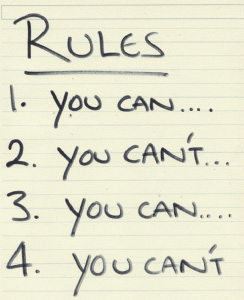Few business phrases can be as disheartening and conversation-stopping as “Sorry, that’s our policy.” Rules, regulations, and policies are there for a reason, and ideally, your team members will provide the best service possible within those guidelines. But the reality of some situations is that a one-size-fits-all approach simply doesn’t always fit. Sometimes, customers make reasonable requests that may run counter to the black-and-white rules outlined in your company’s policy. The important thing for you, your employees, and your 
- Compassion means being able to feel the concerns and misfortunes of others, especially when they’re not your concerns or misfortunes.
- Empathy is the ability to understand and share the feelings of others.
Neither of these mean “pity,” which is about feeling bad for someone else. Compassion and empathy are about feeling alongside another person, taking into account what it would feel like if it were happening to you. Or, in short, it’s being able to put yourself in another’s shoes. When you say, “Sorry, that’s our policy,” you’ve immediately shut the door on compassion and empathy. You’ve created an “us vs. them” dynamic that can be a very steep hill to climb. And rather than retreating to the lead-lined bomb shelter of company rules and regulations, what if you stepped into the customer’s shoes and considered what he or she were experiencing? Are you able to make a second effort to accommodate a client’s reasonable request? Maybe extenuating circumstances truly put the customer in a bind that caused the “policy referees” to reach for their penalty flags. In today’s world of abundance and information, many companies and competitors likely provide services similar to yours. This is another area where empathy and compassion become game-changers. By encouraging your employees to exhibit these traits and to meet reasonable customer requests, you are doing two hugely important things:
- You are differentiating yourself from the competition.
- You are encouraging an environment of authenticity, which builds client trust.
The first point is a cornerstone of marketing: offer something that no one else does. But the second? Just try and put a price tag on building customer relationships. Now all of this isn’t to say that every customer sob story needs to be met and mopped up with an endless supply of tissues. That’s why you’ll find the word “reasonable” used throughout this post. This also doesn’t mean that logic needs to be thrown out the window and that your company should be moved to a picturesque mountainside retreat where you talk about feelings and hug out all of your client issues. Logic and emotion are both entirely useful, vital components to any business. Yes, logic without emotion is cold, sterile, and unfeeling, but, as Daniel Pink writes in A Whole New Mind, “Emotion without logic is a weepy, hysterical world where the clocks are never right and the buses always late. In the end, yin always needs yang.” Pink goes on to note that it’s our ability to be logical that makes us human. But our world is saturated with information and analytical tools, the rules and regulations of company policies. In other words, logic alone just doesn’t cut it. What separates those who merely exist and those who succeed are the folks who recognize the humanity of our professions. Simply stated, expressing care and concern for your customer can forge and strengthen relationships. And that’s a policy that anyone can support.
##########
© ServiceSkills.com We encourage you to distribute this message to colleagues. When you’re ready to empower your staff with proven customer service and team building skills, please let us know.